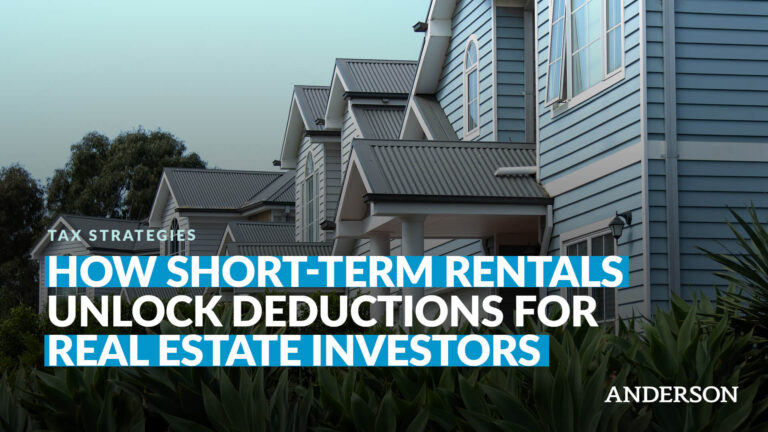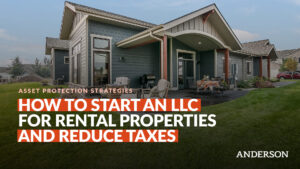6 Ways to Get Ahead with Rising Housing Market Prices
- Buy Cash Flow Property
- Put 20% Down When Buying Real Estate
- Buy Home Improvement and Builder Stocks
- Invest in Crowdfunded Real Estate
- Buy in Secondary Markets
- Buy Distressed Housing
Like anything else, house prices rise and fall. The housing market moves in cyclical patterns, partially in response to outside events. At the time of this article, we are in a space where the U.S. National Home Price Index has increased by more than 18 percent over the past 12 months. This increase is the strongest since index tracking began.
And while that’s great for someone selling their home, it’s difficult for someone looking to buy a home for themselves or as an investment—whether they are flipping homes or looking for a rental property.
But any good investor will tell you that there’s a silver lining to every cloud. While rising home prices may make it more difficult to get into real estate, there are ways around that, and even ways to even capitalize on the rising trend.
Remember, of course, that what goes up must come down…or in some cases, pop. In 2008 the housing market bubble did indeed pop, creating an entire decade of fallout. Since then, lenders have tightened their lending requirements, making it unlikely that we will see a repeat of the Subprime Mortgage Crisis housing bubble.
Why Are Housing Market Prices Rising?
The Covid-19 Pandemic has been a large part in the dramatic increase in house price growth. There were major supply chain disruptions that caused increasing prices in terms of materials and labor, making home renovations or expansions difficult, if not impossible, for many homeowners. Instead, these homeowners are searching for a bigger house rather than hiring contractors to expand their current residence.
Many employees have started working from home during the pandemic. Some have switched entirely to work-from-home models. These employees are now free to contemplate moving anywhere.
Just like stocks, increased transactional activity alone can drive up the price of an asset. In this case, such activity may be fueling rising home costs.
6 Ways to Get Ahead with Rising Housing Market Prices
Just because real estate prices are higher than usual doesn’t mean you can’t still take advantage of a housing rising market. Here are six ways you can get ahead when real estate prices are high:
1. Buy Cash Flow Property
The first way to get ahead of rising housing market prices is to hedge your losses with monthly rental income. If you purchase a duplex, triplex, or even quadplex, you can live in one of the units and rent out the other three. The rent prices on the other units will cover your own mortgage and then some.
Rising housing price has made it difficult for many people in terms of consumer house buying power. This is because household income has not kept pace with inflation over the years. Even for a median priced single family home outside of hot real estate areas, like Silicon Valley or Manhattan, potential buyers may find a monthly mortgage payment cost prohibitive.
Additionally, many millennials are reluctant to become a home buyer because of their tendency to put off major life events, like marriage and family. This is an opportunity to capitalize on a new type of housing demand: the renter’s market. Declining affordability means that if you are in a position to acquire a rental property, you will likely be able to turn it into a consistent source of cash flow.
2. Put 20% Down When Buying Real Estate
With home prices reaching new historic highs, loan amounts will be bigger than usual. And bigger loans mean more interest paid.
Even though interest rates have reached historic lows (partially as a result of the federal banking system trying to stimulate economic activity), you can still reduce the amount of money you pay over the course of a 15 or 30 year amortized mortgage if you put more money down.
While it’s possible to secure a mortgage with smaller down payments, putting down at least 20 percent will help you avoid paying private mortgage insurance on a monthly basis. The price appreciation we are seeing right now in terms of home sales also makes the real estate market an attractive alternative to just holding on to your cash, especially because skyrocketing inflation is severely weakening the power of the U.S. dollar.
For instance, if you are looking at a $200k property (a common median home price) and thinking about putting $50k down, whatever price increase your property sees could be applied to the money in terms of its value. Let’s say that in 2022, inflation continues to rise by 10 percent, but housing prices increase eight percent. Would you rather lose $5k of purchasing power, or see your money mature in an investment that brings it up $4,500?

3. Buy Home Improvement and Builder Stocks
With home prices increasing and limited existing homes, there are going to be a number of people who will bite the bullet and renovate or expand their home themselves. People are also spending more time at home because of the pandemic.
At the beginning of the pandemic, roughly 60 percent of polled homeowners reported that they were happily engaged in some sort of DIY project. Over the course of 2020, that number grew to 80 percent.
Supply chain disruptions have made the cost of raw goods rise significantly. Investors can take advantage of these trends by purchasing securities like Home Depot or Lowes stock.
4. Invest in Crowdfunded Real Estate
If housing affordability means you can’t purchase a property on your own, consider joining a crowdfunded venture or participating in a REIT.
A Real Estate Investment Trust is sort of like a mutual fund, only you get to participate in a portfolio of properties instead of stocks. REITs, like Fundrise, allow you to participate with as little as $500. Others have minimum investment thresholds that are more often than not just as expensive as purchasing a property for yourself.
You might even consider reaching out to your network to see if any real estate developers or entrepreneurs are flipping homes and looking for silent partners. This can be a great way to get a fractional share of a real estate investment instead of going all in.
Keep in mind that you will want this type of arrangement to have some sort of legal structure to protect your interests. This type of legal structure will most likely put you into the role of a limited partner—meaning, you provide the money, but the developer makes all the decisions. If this type of arrangement leaves you feeling too out of control, then you might want to look into ways to flip homes yourself.
Real estate funding doesn’t just have to come from a traditional mortgage lender. Join the Anderson Advisor’s Funding Community today to gain access to a wide range of alternate funding options.
5. Buy in Secondary Markets
Markets like the San Francisco Bay Area, San Jose, Manhattan, Las Vegas, and Los Angeles may just be too hot to touch. Not only are listing prices higher, but it’s not uncommon to find yourself in a bidding war when placing offers. So, why not invest in secondary markets and suburban homes in places like Nashville, Boise, or Louisville?
These places may be experiencing an oversupply of homes, which means that it’s a buyer’s market. Eventually these markets are going to get hot, and if you get your foot in the door now, you could see generous rewards down the line. You might also consider out-of-the-box investments, like mobile home investing.
If housing prices are too cost prohibitive, consider other ways of capitalizing on the trend. In other words, you could invest in secondary markets not in terms of geographic location, but secondary markets that service the housing industry or provide alternative housing arrangements.
For instance, you could offer property management services, or even obtain a real estate agent license. In most locations, the process for getting a license is very feasible, even for someone working another full-time job. You just need to take a class, pass an exam, and start working for a broker.
6. Buy Distressed Housing
Another opportunity to avoid prohibitive real estate growth is to explore the distressed housing market. This can be an attractive venue for finding a personal residence because distressed housing doesn’t just exist in underserved metropolitan areas—it exists anywhere people might have to go through a short sale or a foreclosure.
In fact, there are likely distressed properties within a five to 10-mile radius of your personal residence. This is especially true in the aftermath of the pandemic, when many people who lost their jobs or had their businesses closed will have to unexpectedly move or downsize their living arrangements.
Of course, learning how to buy foreclosed homes can be a great way to make money if you know how to renovate the home and relist it on the market. And while housing prices are increasing, price growth has decreased affordability for the average consumer, so investors can enter the market with an attractive offer acquired at a steep discount—which of course means more profit.
Successful Investing is Still Possible in a Rising Housing Market
Where there’s a will, there’s a way—and smart investors know there is a silver lining to every gray cloud.
When it comes to rising home prices, you don’t necessarily have to wait out the rising market in order to start investing in real estate. As you can see from the investment strategies above, there are many ways to take advantage of a rising housing market to create a profitable real estate portfolio.
Learn more about investing in real estate and other types of investments straight from the Anderson Advisor’s experts at our Infinity Investing Workshop. With decades of experience working with all types of investors in a wide variety of locations and life stages, we can help you pinpoint the strategies that will work best for building personal wealth. Don’t put off your financial freedom any longer—claim your free ticket today!
As always, take advantage of our free educational content and every other Tuesday we have Toby’s Tax Tuesday, a great educational series. Our Structure Implementation Series answers your questions about how to structure your business entities to protect you and your assets.
Additional Resources:
- Claim your FREE Strategy Session
- Join our next Tax & Asset Protection event to learn more advanced tax minimization & entity structuring strategies
- For all things investing, check out the Infinity Investing YouTube channel
- Subscribe to our YouTube channel to make sure you never miss the latest strategies & updates
Bonus Video
Free Strategy Session with an Anderson Advisor
Receive a detailed risk assessment to assist in lowering problem areas that could wipe out all of your assets with one wrong move. Speak with an Anderson Professional Advisor to get your FREE Strategy Session. Limited-Time offer: FREE (a $750 value.)
















